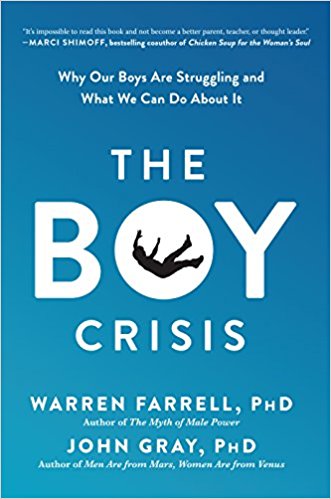![]()
Victoria lawyer and children's advocate dies at 54
Lex Reynolds played key role in case of Sherry Charlie, a victim of abuse
Times Colonist, By Lindsay Kines, May 15, 2009
Lawyer Lex Reynolds dies after heart attack, at 54.
Photograph by: Darren Stone, Times Colonist, Times Colonist
Victoria lawyer Lex Reynolds, whose advocacy on behalf of vulnerable children led to improved oversight of B.C.'s child welfare system, has died.
He was 54.

Reynolds suffered a heart attack last Saturday while on a golf outing with his 21-year-old son, Tai. Friends and family say that he died in his son's arms.
Reynolds devoted much of his adult life to helping children and families, volunteering hundreds of hours to agencies such as the Adoption Council of Canada. He also helped establish the Victoria Foundation's B.C. Adoption and Permanency Endowment Fund to assist children and youth in care or at risk of coming into care.
But Reynolds is probably best known for representing Harvey and Rose Charlie, who demanded the child welfare system be held to account for the death of their 19-month-old granddaughter, Sherry Charlie, in Port Alberni in 2002.
The little girl was beaten to death after being placed in the care of her great aunt under a kith-and-kin arrangement. The aunt's spouse, who had a history of violence, pleaded guilty to manslaughter and received a 10-year prison sentence.
Reynolds played a central role at the coroner's inquest in 2006, drawing jurors' attention to the weakened oversight of B.C.'s child-protection system. The jury responded by recommending that the provincial government restore the disbanded children's commission.
Former judge Ted Hughes made a similar recommendation in a subsequent report that led to the appointment of representative for children and youth Mary Ellen Turpel-Lafond. Her independent office now oversees the system and reviews the deaths of children in care.
Shelly Johnson, former chief executive officer of Surrounded by Cedar child welfare agency, praised Reynolds' commitment to social justice and his efforts on behalf of aboriginal people.
"Lex was my best friend and taught me what an advocate and true advocacy really looks like," said Johnson, now an assistant professor at Thompson Rivers University in Kamloops. "He had a firm belief in a better day for us all and always spoke about the many 'kind and decent' people in his life, yet that description was most apt of him.
"I always thought that the Creator must love Lex very much because of all the things he was able to do on behalf of people in such a short time. I'm going to miss him for the rest of my life."
Victoria lawyer Mary Mouat, who was often Reynolds' adversary in court, described him as a "passionate advocate" for his clients.
"He could be relentless and admirable in what he perceived as their rights," she said. "Lex could get me crazy, he could make me laugh, he sometimes made me do my best work, and it wasn't until this week I realized he could make me cry."
Eric Jones, a long-time friend, said as committed as Reynolds was to his work, it came second to his wife, Valerie, and son, Tai, who is now on a golf scholarship at Southern Utah University.
"He was a man very devoted to his own child," Jones said. "He spent so much time on the golf course with Tai and he took time off from work. So, I mean, he had his priorities in the right place in terms of his own child versus getting wealthier."
In a Father's Day interview with the Times Colonist in 1996, Reynolds said that becoming a dad had enriched his life. "He's taught me how precious, how valuable life is," Reynolds said.
A celebration of that life is set for tomorrow from 5 p.m. to 7 p.m. at the Victoria Native Friendship Centre, 231 Regina Ave. Donations can be made to the Lex Reynolds Adoption and Permanency Endowment Fund at the Victoria Foundation.
© Copyright (c) The Victoria Times Colonist
TEDx Dr Warren Farrell
TEDx - The Boy Crisis: Why Our Boys Are Struggling and What We Can Do About It
One of the foremost speakers and thinkers on gender issues
It's a crisis of education. Worldwide, boys are 50 percent less likely than girls to meet basic proficiency in reading, math, and science.
It's a crisis of mental health. ADHD is on the rise. And as boys become young men, their suicide rates go from equal to girls to six times that of young women.
It's a crisis of fathering. Boys are growing up with less-involved fathers and are more likely to drop out of school, drink, do drugs, become delinquent, and end up in prison.
It's a crisis of purpose. Boys' old sense of purpose-being a warrior, a leader, or a sole breadwinner-are fading. Many bright boys are experiencing a "purpose void," feeling alienated, withdrawn, and addicted to immediate gratification.
So, what is The Boy Crisis? A comprehensive blueprint for what parents, teachers, and policymakers can do to help our sons become happier, healthier men, and fathers and leaders worthy of our respect.

Why boys are in trouble
Boys have been painted as the bad guys in the push to encourage girls to succeed, leaving many young men feeling confused and alienated, wondering what they did wrong
The Associated Press
January 5, 1999
According to psychologist and author William Pollack, 'sports are the one arena in which many of society's traditional strictures about masculinity are often loosened, allowing boys to experience parts of themselves they rarely experience elsewhere.'
When Harvard Medical School psychologist William Pollack administered a test to a group of 150 teenaged boys a few years ago, the results were shocking.

The Boy Crisis Book
The Boy Crisis: Why Our Boys Are Struggling and What We Can Do About It
Authors- Waren Farrell PhD and John Gray PhD
What is the boy crisis?
It's a crisis of education. Worldwide, boys are 50 percent less likely than girls to meet basic proficiency in reading, math, and science.
It's a crisis of mental health. ADHD is on the rise. And as boys become young men, their suicide rates go from equal to girls to six times that of young women.
It's a crisis of fathering. Boys are growing up with less-involved fathers and are more likely to drop out of school, drink, do drugs, become delinquent, and end up in prison.
It's a crisis of purpose. Boys' old sense of purpose-being a warrior, a leader, or a sole breadwinner-are fading. Many bright boys are experiencing a "purpose void," feeling alienated, withdrawn, and addicted to immediate gratification.
So, what is The Boy Crisis? A comprehensive blueprint for what parents, teachers, and policymakers can do to help our sons become happier, healthier men, and fathers and leaders worthy of our respect. Read More ..

Health Canada Publication
The Invisible Boy: Revisioning the Victimization of Male Children and Teens
"... the existence of a double standard in the care and treatment of male victims, and the invisibility and normalization of violence and abuse toward boys and young men in our society.
Despite the fact that over 300 books and articles on male victims have been published in the last 25 to 30 years, boys and teen males remain on the periphery of the discourse on child abuse.
Few workshops about males can be found at most child abuse conferences and there are no specialized training programs for clinicians. Male-centred assessment is all but non-existent and treatment programs are rare. If we are talking about adult males, the problem is even greater. A sad example of this was witnessed recently in Toronto. After a broadcast of The Boys of St. Vincent, a film about the abuse of boys in a church-run orphanage, the Kids' Help Phone received over 1,000 calls from distraught adult male survivors of childhood sexual abuse. It is tragic in a way no words can capture that these men had no place to turn to other than a children's crisis line."
American Psychological Association
Dating Violence Statistics in the United States
Nearly one in 10 girls and one in 20 boys say they have been raped or experienced some other form of abusive violence on a date, according to a study released Sunday at the annual meeting of the American Psychological Association.
![]()
The mean T-shirt: From the Stupid Factory
Todd Goldman says his popular boy-bashing T-shirts are simply funny.
So why are retailers having second thoughts? Read More ..

Why boys are in trouble
Boys have been painted as the bad guys in the push to encourage girls to succeed, leaving many young men feeling confused and alienated, wondering what they did wrong
The Associated Press
According to psychologist and author William Pollack, 'sports are the one arena in which many of society's traditional strictures about masculinity are often loosened, allowing boys to experience parts of themselves they rarely experience elsewhere.'
When Harvard Medical School psychologist William Pollack administered a test to a group of 150 teenaged boys a few years ago, the results were shocking.
![]()
Where the boys are
The Globe and Mail
February 1, 2003
Academically, boys across the country are lagging behind the girls, but a Montreal public school has seen dramatic improvement by separating the sexes in classes. It allows teachers to tailor curriculum and style to suit each sex. The result? The number going on to college has nearly doubled. INGRID PERITZ reports
MONTREAL -- The teenage girls at James Lyng High School like to flirt with boys. They like to tease them, joke with them, even date them sometimes. But attend class with them? As the giggling girls in one math class this week might say, "Gross."
Luckily, they don't have to. Coed James Lyng splits boys and girls up at the classroom door. The division of the sexes is credited with helping turn a faltering inner-city high school into an education success story.


